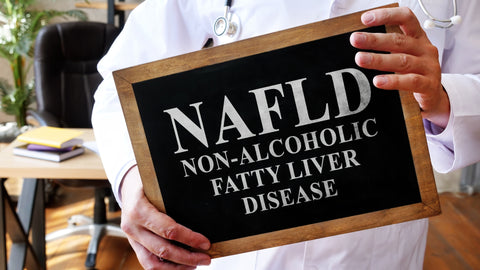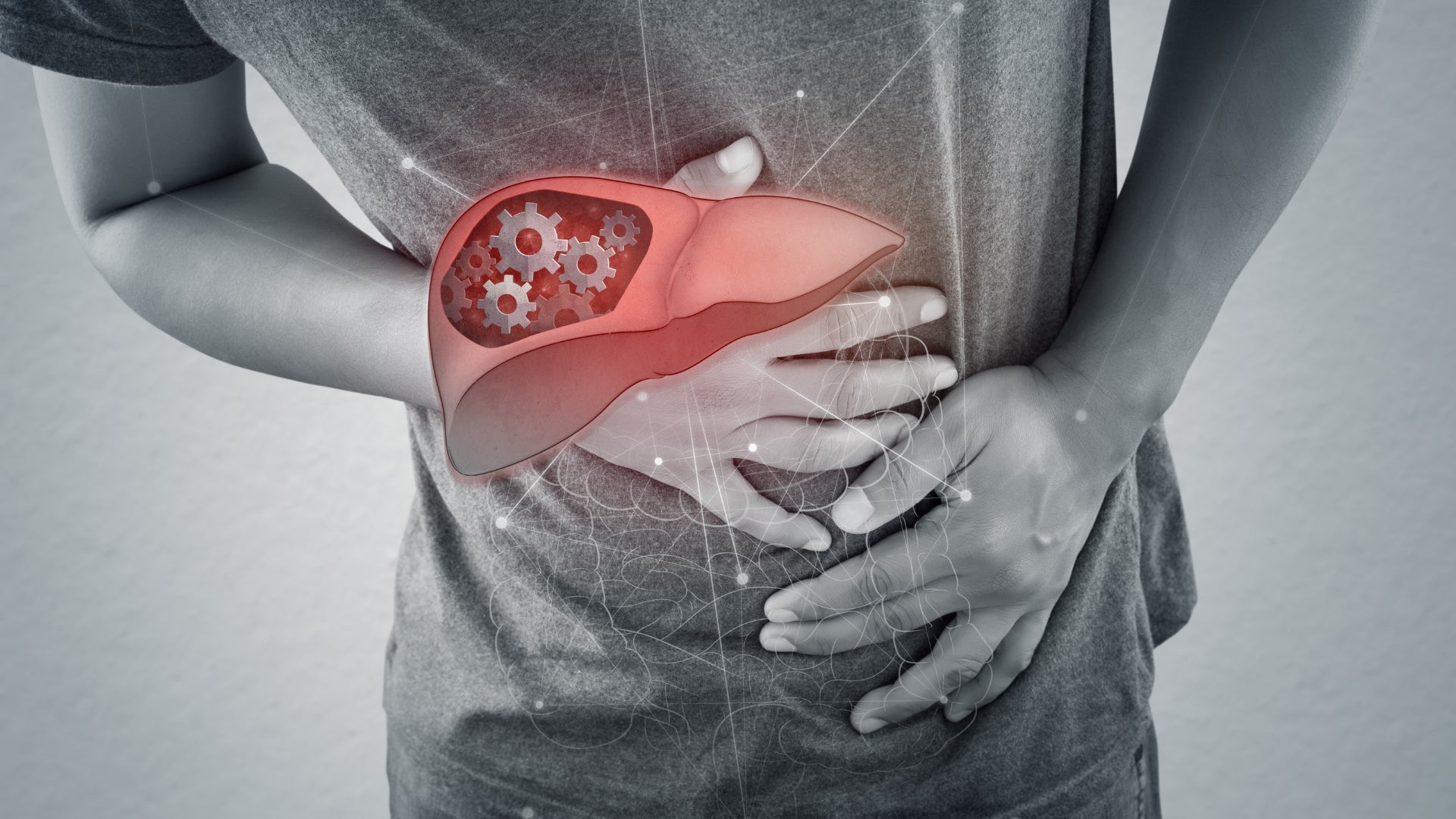Alcoholic fatty liver disease is defined by the accumulation of excessive fat cells in the liver. Although treatable, if ignored and not properly managed, this condition can worsen over time. Excessive alcohol and other substance consumption is strongly associated with the development of fatty livers.
Fatty Liver Disease, or FLD, arises when liver cells store an excessive amount of fat, resulting in liver inflammation and heightened hepatitis risk.
When FLD interferes with the liver's natural ability to breakdown and eliminate fats, it creates a vicious cycle of cause and effect.
Alcoholic and nonalcoholic fatty liver diseases are the two main classifications for FLD because alcohol use considerably outweighs other contributing factors.
Alcoholic fatty liver disease presents with a variety of symptoms, such as jaundice, fever, spider angiomas, and an elevated white blood cell count, while non-alcoholic fatty liver disease impairs the liver's normal functions.
What are the Types of Fatty Liver Disease?
Typically, Alcohol-Related Liver Disease (ALD) can be mitigated by reducing alcohol consumption. However, without appropriate treatment, it may advance to more severe stages.- Alcoholic Fatty Liver: This condition, often the initial phase of ALD, is primarily due to excessive alcohol consumption. It is characterized by an accumulation of fat and toxins in the liver. Early-stage alcoholic fatty liver can be reversed with cessation of alcohol use, and typically, there are no distinct symptoms at this point.
- Alcoholic Hepatitis: The second phase of ALD, alcoholic hepatitis, is primarily caused by long-term alcohol abuse. It can progress to advanced hepatitis and cirrhosis, unlike viral hepatitis, if left untreated.
- Alcoholic Cirrhosis: This stage involves a great deal of liver scarring and damage, which comes from prolonged alcohol abuse. While alcoholic cirrhosis cannot be completely cured, reducing alcohol consumption can help improve life expectancy and slow its progression.
Non-Alcoholic Fatty Liver Disease : (NAFLD)

NAFLD has several causes, including infections, and progresses through four stages:
- Simple Fatty Liver: Most individuals with NAFLD have this condition, where the liver contains fat deposits without causing cellular damage or inflammation. Typically, simple fatty liver does not evolve into more serious health issues.
- Non-Alcoholic Steatohepatitis (NASH): At this phase, the liver experiences inflammation and cell damage. This inflammation can lead to fibrosis and eventually cirrhosis, both of which signify advancing liver disease. Liver transplantation may be considered in severe cases.
- Fibrosis: Fibrosis, which is characterized by ongoing liver and blood vessel scarring, is reversible if the source of inflammation is addressed early. Untreated, it can cause healthy liver cells to be replaced with scar tissue, eventually leading to cirrhosis.
- Cirrhosis: In this final stage of NAFLD, symptoms include yellowing of the skin and eyes and continuous abdominal pain. At this point, the liver is extensively scarred, and while it is challenging to reverse the damage, halting the progression of the disease is possible by managing the underlying causes of inflammation.
What are the Causes of Fatty Liver Disease?
Fatty liver disease (FLD) can be caused by various factors, including:
- Obesity: Excessive body weight can lead to a disproportionate fat-muscle ratio, putting strain on the liver and increasing the risk of FLD.
- Type 2 Diabetes: Diabetes can promote fat accumulation in the liver, leading to inflammation or scar tissue formation.
- Alcohol Consumption: Excessive alcohol consumption may impair the liver's ability to metabolize fat, resulting in fat accumulation in liver cells and FLD over time.
- High Triglyceride Levels: High triglyceride levels in the blood can cause fat buildup in the liver, which contributes to non-alcoholic fatty liver disease (NAFLD).
These factors often interact and can contribute to the development and progression of FLD. It's essential to manage these risk factors through lifestyle changes, such as maintaining a healthy weight, managing diabetes effectively, moderating alcohol consumption, and keeping triglyceride levels in check through diet and exercise.
What are the Symptoms of Fatty Liver Disease?
The symptoms of fatty liver disease (FLD) can vary depending on the stage and severity of the condition. In its early stages, FLD may not cause noticeable symptoms. However, as the disease progresses, especially if it advances to cirrhosis, the following symptoms may occur:
- Abdominal pain or discomfort, especially in the upper right side of the abdomen,.
- Extreme fatigue or weakness.
- Nausea.
- Loss of appetite.
- Unexplained weight loss.
- Yellowing of the skin and whites of the eyes (jaundice), indicating liver dysfunction.
- Swelling in the abdomen (ascites) due to fluid accumulation.
- Swelling in the legs, feet, or hands (edema) is caused by fluid retention.
- Bleeding from the esophagus, stomach, or rectum, which may be discovered during medical examinations.
It's important to note that these symptoms can also be associated with other health conditions, so a proper diagnosis by a healthcare professional is necessary for accurate treatment.
Ways to Manage Fatty Liver Disease
The management of fatty liver disease (FLD) varies depending on the severity of the condition:
Mild Cases of FLD:
- Dietary changes: Focus on a healthy, balanced diet low in saturated fats, sugars, and refined carbohydrates. Include plenty of fruits, vegetables, whole grains, lean proteins, and healthy fats like those found in nuts, seeds, and fatty fish.
- Maintaining Healthy BMI: Aim to achieve and maintain a healthy body mass index (BMI) through a combination of diet and exercise.
- Regular Exercise: Follow your doctor's advice and partake in regular physical activity, such as flexibility, strength, and aerobic exercises.
Moderate Cases of FLD:
- Taking Care of Alcohol Triggers: Reducing or quitting alcohol consumption is essential to preventing additional liver damage and inflammation if alcohol consumption is a significant contributing factor.
- Anti-inflammatory measures: Use medication, dietary and lifestyle changes in conjunction with medical professionals to control inflammation and stop the progression of disease.
Severe Cases of FLD:
- Liver Transplantation: In cases of extensive liver tissue scarring (cirrhosis) and severe liver damage where other treatments are ineffective, liver transplantation may be recommended as a last resort.
- Regular Monitoring: Even after transplantation, ongoing monitoring and management are necessary to ensure the health of the transplanted liver and overall well-being.
It's important for individuals with FLD to work closely with healthcare providers, including hepatologists, nutritionists, and other specialists, to develop a comprehensive treatment plan tailored to their specific needs and condition severity. Regular medical check-ups, follow-up appointments, and adherence to prescribed treatments are essential for managing fatty liver disease effectively.
Ayurveda's Perspective on Fatty Liver
In Ayurvedic medicine, the liver is thought to be the seat of the pitta dosha, which represents fire and lightness and governs metabolic activities as well as the production of heat and energy. In contrast, kapha, which is known for its cold and heavy qualities, can reduce pitta's efficacy in the liver when present in excess. From this viewpoint, an increase in kapha dosha is believed to lead to fatty liver disease.
Fatty liver Ayurveda Treatment and Home Remedies:

Ayurveda offers several treatments and home remedies for fatty liver disease, tailored to individual health conditions. Here are some renowned Ayurvedic medicines and lifestyle recommendations:
- Triphala: A blend of amla, haritaki, and bibhitaki fruits known for their antioxidant properties and liver cleansing effects. Triphala promotes liver health and is used in Ayurvedic herbal remedies for fatty liver treatment.
- Shankhapushpi: An Ayurvedic herb believed to reduce fat accumulation in the liver, improve liver function, and offer anti-inflammatory and antioxidant benefits.
- Guggulu: A resin extract from the guggulu tree used in Ayurvedic medicine to treat liver and metabolic disorders. It helps improve liver function, reduce oxidative stress, inflammation, and support overall liver health.
- Milk Thistle: This plant, rich in silymarin, is used in traditional medicine to protect the liver, reduce oxidative damage, and promote liver function. It's beneficial for fatty liver disease in Ayurveda.
- Dandelion Root: A bitter herb in Ayurvedic medicine, dandelion root aids in liver and gallbladder function, detoxification, reducing inflammation, and preventing oxidative damage.
- Burdock Root: Another bitter root used in Ayurveda, burdock root helps improve liver function, reduce fat accumulation, and support liver health.
Ayurveda suggests using herbs for treating fatty liver, along with healthy lifestyle changes like eating well, staying active, managing stress with yoga and meditation, and getting enough sleep. These practices help overall health and can prevent problems like obesity and fatty liver disease.
It's important to see an Ayurvedic expert or doctor for personalized treatment and to make sure Ayurvedic remedies are safe and effective for fatty liver or any health issue you have.
Ayurvedic Treatment For Treating Fatty Liver
Every individual's body's constitution is distinct, leading to varying responses to natural remedies. While some may find home remedies as effective as positive thoughts and prayers, others rely on Ayurvedic treatments for support.
Deep Ayurveda offers a diverse array of herbal formulations designed to address both physical and mental health challenges in individuals across different age groups and genders.
Below, we have mentioned a few ayurvedic treatments and medications provided by Deep Ayurveda for fatty liver disease.
1. LivBalya® Liver Detox Formula -
LivBalya® is an Ayurvedic remedy renowned for supporting liver health and addressing issues like fatty liver, high cholesterol, alcoholic liver disease, and other lifestyle-related health concerns. This herbal vegan supplement aids in liver detoxification and cleansing, enhancing metabolism and digestion processes.
This effective anti-alcoholic formula safeguards the liver from the effects of alcohol consumption. It helps maintain healthy cholesterol levels, improves digestion and appetite, and strengthens liver cells and tissues.
2. LivClear®- 100% Extract Based for Liver Health -
LivClear is a highly potent Ayurvedic supplement designed for addressing various liver health issues such as fatty liver, alcoholic liver disease, enlarged liver, high cholesterol levels, constipation, skin diseases, and digestion-related problems, It also offers significant benefits for diabetes management. It's a natural remedy to maintain liver health and fitness.
Formulated with natural and clinically-tested ingredients like Bhoomi Amla (Phyllanthus niruri), Makoy (Solanum indicum), Katuki (Picrorrhiza kurrao), Punarnava (Boerrhavia diffusa), Kal Megh (Andrographis paniculata), Kaasni (Cichorium intybus), Sharpunkha (Tephorsia purpurea), Bhringraj (Eclipta alba), Neem (Azadirachta indica), and Giloy (Tinospora cordifolia), LivClear ayurvedic treatment provides the best liver support for improved efficiency. It helps safeguard against liver damage and nourishes liver cells to promote better overall liver health.
3. Makoy (Solanum nigrum) Vegan Capsule liver health -
Makoy is a plant also known as Solanum nigrum. It has a long history in traditional medicine. These Makoy vegan capsules, made from Makoy extract, offer many health benefits, especially for liver and kidney issues.
These capsules contain a strong extract from Makoy, known for its healing properties in Ayurvedic medicine. In Ayurveda, it's called "Kakamachi" or "Makoy."
Ayurvedic texts describe Makoy based on its taste, how it affects digestion, and its overall potency.
4. Liver Cirrhosis Ayurvedic Management -
Liver cirrhosis is a liver condition marked by irregular liver structure and function. Our Ayurvedic package includes formulations from ancient texts that detoxify and enhance liver function.
This 30-day Ayurvedic management pack offers a natural approach to treating liver cirrhosis. The ingredients are all-natural and aimed at improving liver health, alleviating symptoms, and promoting overall well-being by restoring balance to the body.
5. Fatty Liver Ayurvedic Management -
Fatty liver, or hepatic steatosis, occurs when excess fat accumulates in the liver. Ayurvedic herbs aid in detoxifying the liver, enabling it to function naturally. Our blend of natural Ayurvedic herbs and high-quality ingredients can assist in reducing fatty liver and liver inflammation. The fatty liver treatment package offers a full fledged herbal solution for liver issues, containing Ayurvedic formulations that act as a natural tonic to rejuvenate the liver.
If you want a different way to improve your health, try an Ayurvedic consultation with Dr. Baldeep Kour at Deep Ayurveda. You'll get personalized care from experienced Ayurvedic experts. If you're ready to take control of your health, book your consultation now. Whether you need help with a specific health issue or just want to feel better overall, Ayurveda can help naturally.
Don't wait—schedule your appointment today and start feeling healthier and happier!






